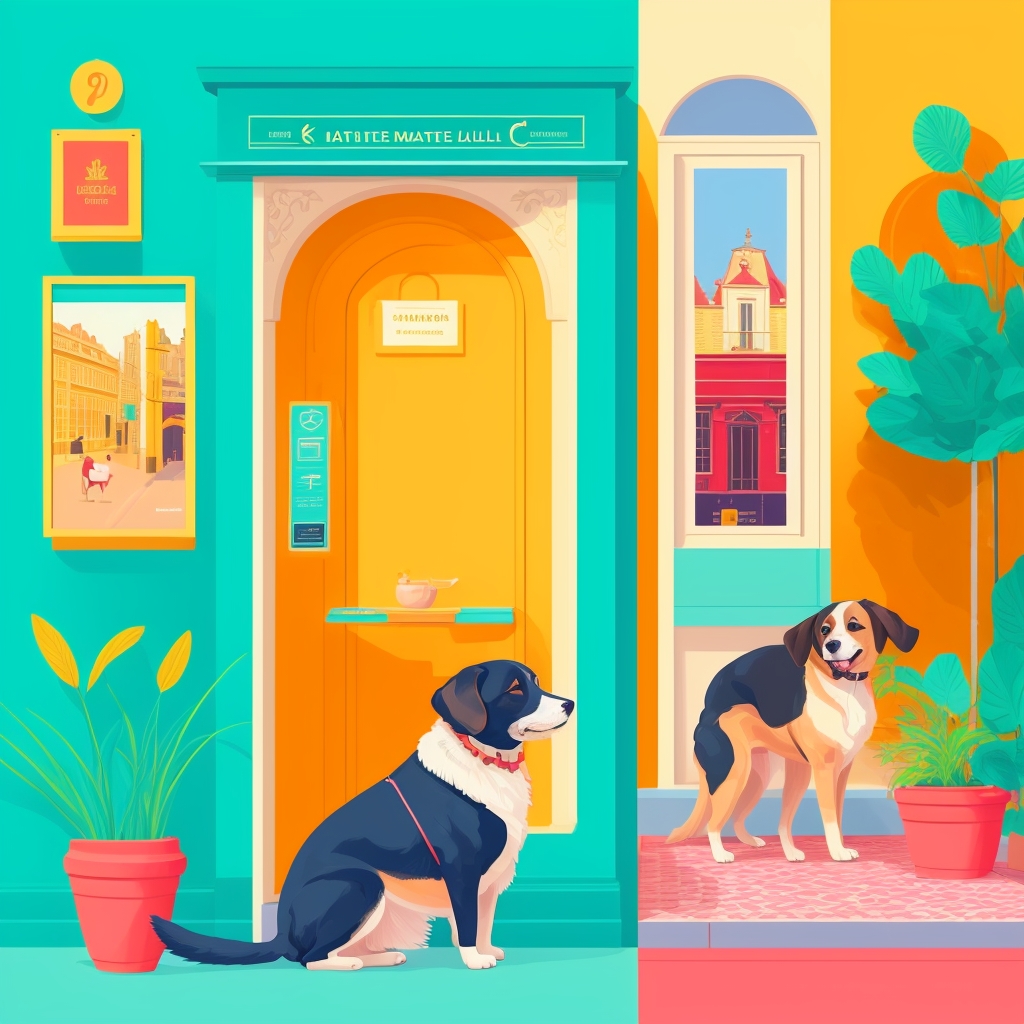Your four-legged friend’s health is paramount, and a vet visit is often necessary to ensure their well-being. However, many dogs experience stress or anxiety during this experience. In 2025, it’s essential to optimally prepare your dog so that the vet visit goes as smoothly as possible. This article will guide you through the key steps to prepare your dog, including modern techniques and practical tips, to minimize stress and ensure a positive experience.
Understanding Vet Visit Stress
Why Do Dogs Get Stressed?
Many dogs can feel anxiety about going to the vet. This can be due to several factors:
- Negative associations: If a dog has had a bad experience at the vet before, they might associate the place with pain.
- New environments: Dogs can be sensitive to the new places, noises, and smells present in a vet clinic.
- Separation from their owner: Some dogs can be anxious about being separated from their owners, even for a short period.
Use Case
A common example is Max, a 3-year-old Labrador who had surgery a year ago. Every time his owners prepare him for a vet visit, Max shows signs of stress, like trembling and hiding under the table. Understanding these behaviors is crucial for developing an effective preparation strategy.
Steps to Prepare Your Dog
1. Familiarization with the Clinic
Preventive Visits
Schedule visits to the vet clinic before the actual appointment. Let your dog explore the place, meet the staff, and even receive a treat. This will help create positive associations.
Practical Examples
- Casual visits: Take your dog for a simple walk around the clinic or even inside if possible.
- Meeting the vet: Ask to meet the veterinarian without any medical procedures taking place. This can reduce your dog’s anxiety.
2. Transport Training
Crate Acclimation
If your dog needs to be transported in a car, accustom them to their carrier or crate well before the appointment. This can include play sessions inside the crate or short car rides.
Practical Tips
- Play sessions: Place toys or treats inside the crate to encourage your dog to enter it.
- Car rides: Take short, pleasant trips so your dog associates the car with a positive experience.
3. Anxiety Management
Using Technology
In 2025, several apps and devices can help manage animal anxiety. Pheromone diffusers and anti-anxiety vests can be effective.
App Examples
- Pet Calm: An app that offers relaxation exercises and personalized advice to help your dog relax before a vet visit.
- Calm Dog: A device that plays soothing sounds to reduce dog stress during transport.
4. Preparation on D-Day
Calm Routine Before the Appointment
Create a calm routine on the day of the visit. Avoid stressing your dog with sudden movements or last-minute changes.
Key Points
- Calm walk: Take your dog for a walk before heading to the appointment so they can relieve themselves and expend some energy.
- Light meal: Avoid feeding your dog just before the appointment to minimize the risk of car sickness.
Key Points and Best Practices
- Anticipation: Prepare your dog several days, or even weeks, before the visit.
- Positive associations: Link the vet clinic to pleasant experiences.
- Modern technology: Don’t hesitate to use technological resources to manage stress.
- Communication: Talk to your dog in a calm and reassuring voice to build their confidence.
- Training: Train your dog to behave calmly at the vet, using positive reinforcement techniques.
Conclusion
Visiting the vet doesn’t have to be a source of stress for your dog. In 2025, with the right practices and the use of modern tools, you can transform this experience into a positive and calm moment for them. By familiarizing your dog with the environment, managing their anxiety, and carefully preparing for the day of the visit, you’ll contribute to their health and well-being. Remember that every dog is unique: adapt your approach based on your companion’s specific needs. With a little patience and preparation, you can make vet visits a hassle-free routine for both you and your faithful friend.
Are there any specific behaviors your dog exhibits before vet visits that you’re hoping to address?







